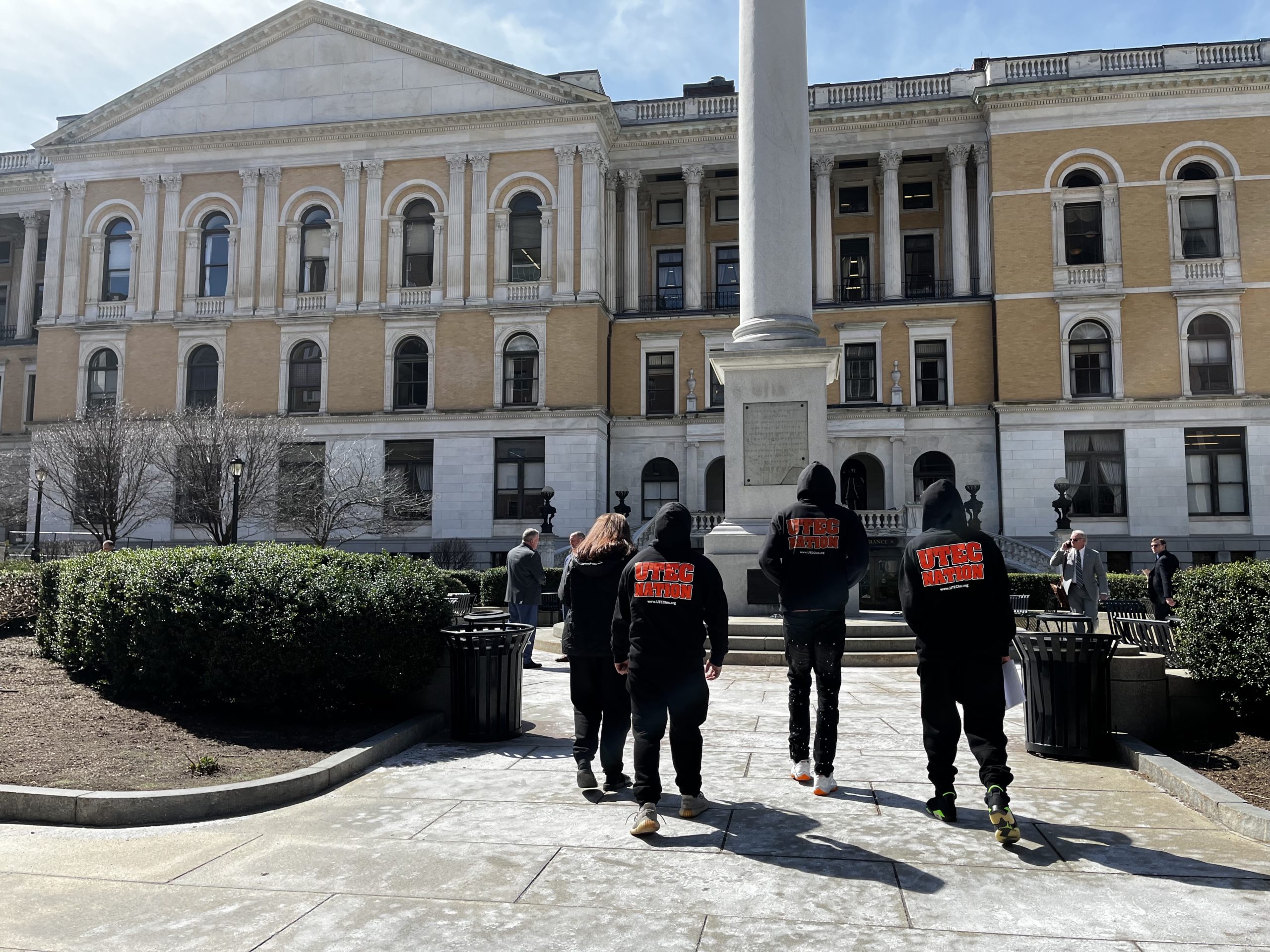
Gun Violence Prevention Funding
Learn more about the $50 million in American Rescue Act Program funding dedicated to addressing youth violence and reentry needs
Massachusetts ARPA Investments on Gun Violence Prevention, Re-Entry, and Youth Employment Services
As part of President Biden’s American Rescue Plan, the state of Massachusetss and legislatures passed H4269, An Act relative to immediate COVID-19 recovery needs. We commend the work of the Massachusetts leadership who prioritized investing in gun violence prevention, re-entry services and youth employment. Please find the summary of all the funding investments in these core areas, as well as the specific line item language:
GUN VIOLENCE PREVENTION FUNDING (Subtotal of $13.75M)
$7.5 Million for new grant program focused on reducing gun and community violence:
Specific Line Item language
1599-2048; For a reserve for focused on reducing gun and community violence and supporting reentry services in communities disproportionately impacted by the criminal justice system; provided further, that not less than $7,500,000 shall be expended for a grant program, to be administered by the executive office of health and human services in consultation with the department of public health, for community-based gun violence prevention and intervention programs; provided further, that said program shall provide multi-year grants for, but shall not be limited to, organizations that: (i) serve communities that are disproportionately impacted by community and gun violence; (ii) seek to interrupt cycles of violence, trauma and retaliation in order to reduce the incidence of community and gun violence, including decreasing the disproportionate impact of violence on historically marginalized communities; (iii) focus on providing violence intervention services to the small segment of the population that is identified as having the highest risk of perpetrating or being victimized by violence and experiencing resulting trauma currently or in the near future; and (iv) have an established track record of working with individuals returning to their communities after incarceration with a focus on those at high risk of recidivism for violent crimes; provided further, that eligible expenses that may qualify for such grants shall include, but not be limited to: (a) evidence-based and evidence informed pilot programs for direct services; (b) support for pay-go capital projects to expand physical capacity; (c) human capital initiatives, including diversity, equity and inclusion initiatives, training and professional development, human resources and other sustainability initiatives; (d) impact and evaluation studies; (e) organizing work focused on creating systemic change or advancing racial and social equity; (f) emergency housing relocation and stabilization; and (g) other direct intervention services; provided further, that prior to establishing grant criteria, the executive office shall seek input from stakeholders including but not limited to survivors of trauma and gun violence, community members impacted by trauma and gun violence, frontline trauma and gun violence intervention workers, and trauma and gun violence prevention experts and researchers.
$6.25 Million toward community-based gun violence and intervention programs
Specific Line Item language
1599-2049: provided further, that not less than $6,250,000 shall be expended for community-based gun violence prevention and intervention programs;
RE-ENTRY SERVICES FUNDING(Subtotal of $11.25M):
$5M towards a new grant program on re-entry
Specific Line Item Language1599-2048:
Provided further, that not less than $5,000,000 shall be expended for a grant program focused on re-entry programming, to be administered by the department of correction in conjunction with the office of the commissioner of probation, that prioritizes communities with high concentrations of individuals who returned to the community from a state prison or county correctional facility during the governor’s March 10, 2020 declaration of a state of emergency; provided further, that funds shall be made available for multi-year grants for, but not limited to: (1) support for pay-go capital projects to expand physical capacity; (2) programming that supports case management, job training and transitional employment; (3) specialized services for emerging adults; (4) support programs for survivors of the sex trade; and (5) regional reentry centers; provided further, that funds shall be awarded to at least 1 organization with experience serving transgender and other LGBTQ individuals returning from state prisons or county correctional facilities for the purpose of providing residential reentry to transgender and other LGBTQ individuals; and provided further, that prior to establishing grant criteria, the executive offices shall seek input from stakeholders and impacted communities on evidence-based and evidence-informed best practices to consider in establishing grant criteria.
$6.25M for re-entry in conjunction with the department of public health.
Specific Line Item Language
1599-2049: provided further, that not less than $6,250,000 shall be expended for re-entry programs, to be administered in conjunction with the department of public health and the department of correction, that prioritize individuals who returned to the community from a state prison or county correctional facility during the governor’s March 10, 2020 declaration of a state of emergency.
YOUTH EMPLOYMENT FUNDING (Subtotal of $25M)
$25M for employment for youth-at-risk
Specific Line Item Language:
1599-2049 For a reserve for a youth-at-risk program targeted at reducing juvenile delinquency and youth and young adult homelessness in high-risk areas and reducing gun violence; provided, that the secretary of administration and finance shall transfer $25,000,000 from this item to item 7002-0012 for the summer job programs and other youth-at-risk employment programs, including programs that serve youths, including lesbian, gay, bisexual, transgender, queer and questioning youth, youth of color and youth who are not more than 25 years of age and are experiencing housing insecurity in response to increased economic insecurity as a result of the 2019 novel coronavirus pandemic.